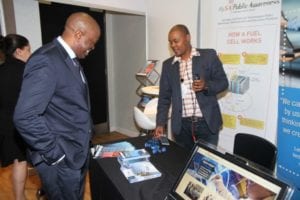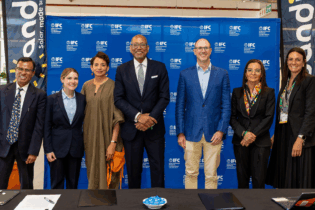The country’s energy challenges have provided us with an opportunity to look differently at the use of hydrogen fuel cell technology (HFCT), says Department of Science and Technology (DST) Director-General Dr Phil Mjwara.
Dr Mjwara was speaking in Cape Town at the first HySA technical meeting. The main purpose of the meeting was to promote technical and commercial interaction between the HySA centres of competence (CoCs) and stakeholders in the HFCT sector, with the aim of strengthening public-private partnerships under the HySA programme. The DST’s National HFCT Research, Development and Innovation Strategy, being implemented by three HySA centres of competence (CoCs), is aimed at stimulating innovation along the value chain of HFCT in the country. The three CoCs established by the DST are responsible for ensuring that the goal of South Africa supplying 25% of global demand for platinum group metals (PGMs) is met. South Africa has an abundance of PGMs, which are the key catalytic materials used in most fuel cells.Potential for socio-economic benefits
With the increasing global demand for PGM products, this offers great potential for socio-economic benefits. The human capital required to grow this sector is also being developed through the CoCs, and will lead to job creation.Dr Mjwara welcomed the pace of development of HFCT since the launch of HySA in 2008. He said the development of the 2.5 kW power-generator unit at the University of the Western Cape had been successful.
The fuel cell generator provides power for lights at the Cape Flats Nature Reserve. Another fuel cell project had seen HFCT successfully used as standby power at three schools in Cofimvaba, in the rural Eastern Cape, having a profound effect on learning and the lives of ordinary people. The Director-General said that in the next two or three years HySA technology would be linked to other government initiatives, like the agri-parks initiative led by the Department of Rural Development and Land Reform (DRDLR), special economic zones led by the Department of Trade and Industry, and other DST-funded initiatives in identified priority districts.






